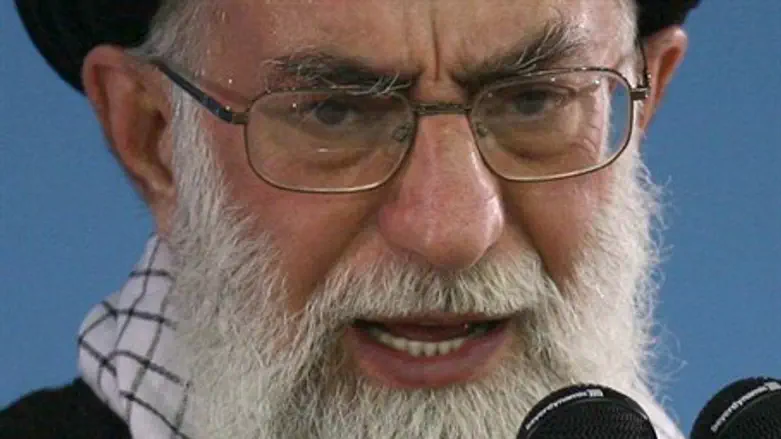
The fate of Iran's nuclear deal with world powers is still undecided but it will not leave the country open to US influence, supreme leader Ayatollah Ali Khamenei said Monday.
Khamenei, the country's highest authority, said in a statement quoted on his website that Tehran would block any US attempt to influence Iran despite the historic accord.
"They think that through this agreement - the fate of which is not clear as no one knows if it will be approved here or in America - they could find a way to intrude into the country," Khamenei said.
"We have closed such a path and will decisively shut it. We'll allow neither economic nor political nor cultural intrusion by the United States."
The deal, reached in Vienna last month, must still be ratified by the US Congress and could face the need for parliamentary approval in Iran.
Khamenei, quoted as speaking to members of the Islamic Radio and Television Union in Tehran, also accused the United States of trying to "infiltrate" the Middle East.
"They seek the disintegration of Syria and Iraq, (but) with God's help it will not happen," he said.
Khamenei's remarks reflected Tehran's continued deep hatred of the United States, despite his backing President Hassan Rouhani in reaching a deal.
The agreement between Iran and six major powers - Britain, China, France, Germany, Russia and the United States - aims to curb Iran's nuclear program in exchange for a gradual lifting of international sanctions imposed on its economy since 2006.
But the deal has come under increasing scrutiny since its announcement last month, with critics pointing out that it places only temporary limitations on Tehran's nuclear program in exchange for irreversible sanctions relief.
The US Congress, dominated by Republicans in opposition to President Barack Obama, is expected to pass a resolution opposing the deal in September.
Obama is likely to veto that measure, but Congress could still override such a veto - and kill the Iran deal - with a two-thirds majority in both the Senate and House of Representatives.
In Iran, a debate is ongoing on the need for parliament to approve the agreement.
A majority of lawmakers - 201 of 290 - has requested that the agreement be submitted as a bill to be voted on and approved. However the theocratic dictatorship's parliament has no real power, with the Supreme Leader the one calling the shots.
In his speech, Khamenei also stressed his support for anti-Israel terrorist groups, support for whom is expected to increase significantly as billions of dollars in sanctions relief come into effect..
"Iran defends the resistance in the region, including the Palestinian resistance, and provides support for anyone who fights Israel and strikes the Zionist regime," he said.
Iran's support for a wide range of terrorist groups and other armed proxies has both Israel and its Arab neighbors concerned, and the lack of any insistence to end that support as a condition for sanctions relief is another major bone of contention among the deal's critics.
AFP contributed to this report.
